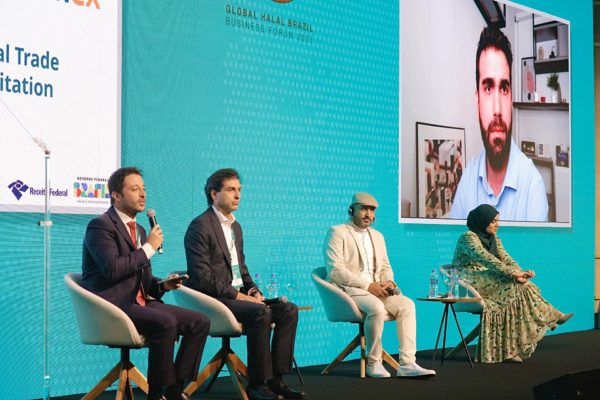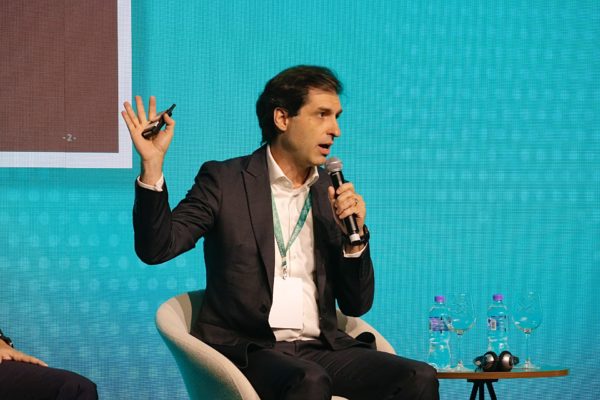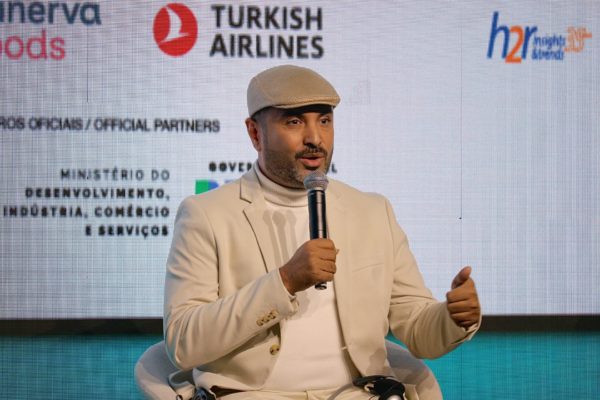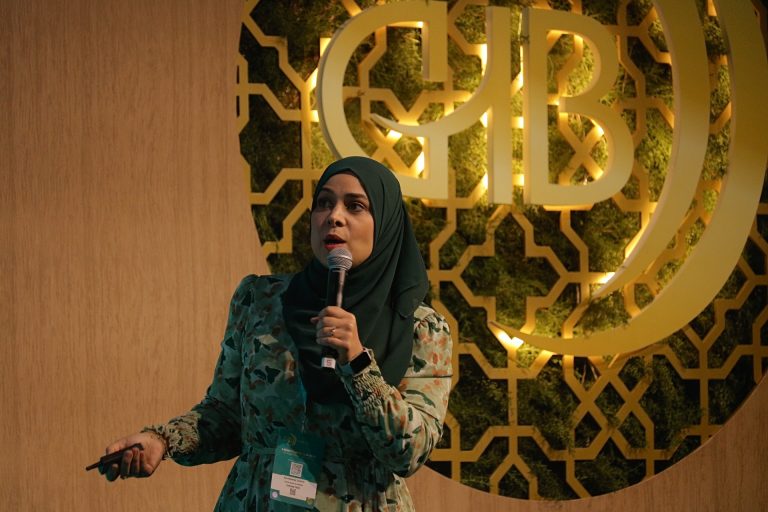São Paulo – The second day of the 2023 edition of the Global Halal Brazil (GHB) Business Forum held in São Paulo saw discussions on the currently available resources to cut the red tape in both halal and overall trade by streamlining processes and making them more efficient, traceable and trustworthy.
Talks were held during the panel “Technology as a Driver for Halal Global Business”, moderated by Estevão Carvalho, new business director of the Arab-Brazilian Chamber of Commerce (ABCC).
“Regarding the impacts that technology has on global trade, more specifically on halal goods, I think of two boxes,” said Carvalho in his introduction. “The first box I would define as agility, perhaps the most common to all business environments where there is more information security, less time and less cost. After the pandemic years, the importance of seeking competitiveness became very evident for us.”

The other box mentioned by the ABCC’s new business director is trust, which is much more closely identified with the halal world. “It’s a box whose concept is not new, but historical. There are now new technological tools and new processes, though, allowing that the whole supply chain can show how the halal process was conducted and kept throughout the production, supply, distribution and sale,” finished Carvalho, before giving the world to the first panelist, Tiago Barbosa, general coordinator of trade facilitation and Brazil’s Single Window manager at Brazil’s Ministry of Development, Industry, Trade and Services.
Barbosa started his presentation by explaining that the Single Window is the leading initiative of the federal government to cut the red tape in trade operations by shortening time and costs for both exporters and importers.
He explained that the Single Window has been in full use since 2018 in 100% of the exports. In 2014, foreign trade in Brazil entered the era of digital documents. It became possible to carry out exports and imports scanning paper documents and submitting them to governmental platform Siscomex Single Window to clear goods.
A second step was taken in 2018 with the adoption of electronic documents in digital format that dispensed with paper originals to be created. According to Barbosa, 2022 saw the start of the third modernization of trade operations with the electronic data interchange (EDI), also known as interoperability. “In 2018 there was already electronic document emissions, but they had to be submitted manually to the other side of the world so that the importer presented this electronic document to his country’s customs.”
Interoperability allowed goods to land already cleared on their destination site, whose inspectors can examine the documentation and clear them based on documents issued by recognized entities, digitally signed and transferred via blockchain with cryptography.
Barbosa mentioned a study by industry group CNI in 2021 that shows the trade clearance time reduction brought about by the Single Window project. Once the federal government started carrying out this initiative, the average time to export and import was cut short by eight days.
This is the average clearance time from when the goods arrive in the border point to when all documents are submitted and the goods are allowed to enter or leave the country. “In 2014 this time was cut short from 13 to five days in export operations, and we’re nearly managing to reach four days now in 2023,” says Barbosa. “Import times went down from 17 to nine days.”

Vidal Mello, consultant and professor at the University of São Paulo (USP) was the second panelist. He said his surveys show that documents from most companies are usually under electronic controls but always depending on the intervention of a human to upload the information from a system to another.
“This must change,” said Mello. “With all technologies now available like the internet of things, blockchain, big data, artificial intelligence etc., we need to design new processes from scratch. And these new processes must be based on data, to be interoperable.”
Mello gave an example of a project that he has developed with the support of the ABCC, Brazil’s beef industry group Abiec, meat processor association ABPA and Ministry of Agriculture.
Regarding the production declaration, the project aims to streamline the emission process of international health certificates, which are issued by Brazil to importer countries, ensuring that a series of health requirements are met by the goods.
The third panelist was Soha Mohamad Chabrawi (opening photo), technical quality manager of FAMBRAS Halal, who explained the workings of the Sys Halal platform and its use for halal certification.
She recounted how digital halal certification started in the company. In 2019, FAMBRAS’s IT team pointed out that there was too much paperwork for issuing shipping certificates and halal certificates. And in a bid to reduce the number of issued papers, the proposal to structure out a digital certification was made.
“We are the pioneers in trying to make this certification digital. This is very in line with what we’ve been speaking about ESG. The E in ESG stands out for this environmental concern. And halal is extremely aligned with ESG,” said Soha. “I often say that it’s not halal that is trying to be more like ESG. It’s the other way around. Halal has been there for 1,500 years. This environmental, social and governance concerns are very strong principles of halal. It’s the ESG improvements that are trying to be more like halal.”

The last panelist was Mohammed Alkaff AlHashmi, cofounder of Islamic Coin. He talked of how creativeness, innovation and transparency are needed in evolving the service delivery to a community that abides to Islamic finance values in the halal ecosystem.
“When we talk about this, our leading focus is earning the trust of the community if it they don’t believe in this halal ecosystem yet. If we don’t have the community and their projects, this won’t grow any further. This is connected to trust, to the support to the ecosystem as a whole,” said AlHashmi.
The GHB is supported by the International Halal Academy, the Islamic Chamber of Commerce, Industry and Agriculture, the Union of Arab Chambers, and the Arab League, and it’s held in partnership with the Brazilian Federal Government, Ministry of Development, Industry, Trade and Services, Ministry of Foreign Affairs, and ApexBrasil.
Its sponsors are BRF, Marfrig, Minerva Foods, Laila Travel, Turkish Airlines, Brazilian Tourism Board (Embratur), Travel Plus, H2R Insights & Trends, World Logistic Passport (WLP), Bank ABC in Brazil, Seara, Pão & Arte, Cristal Plus, Pamunã Alimentos.
Read more about the GHB Business Forum.
Translated by Guilherme Miranda




